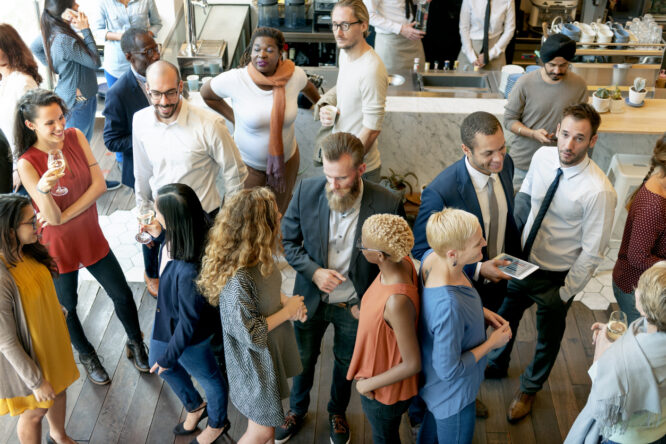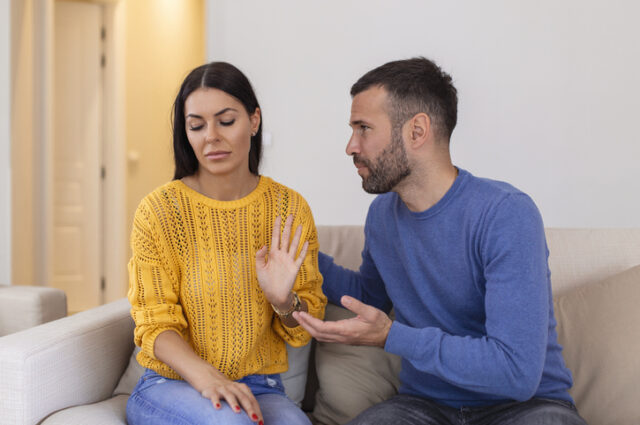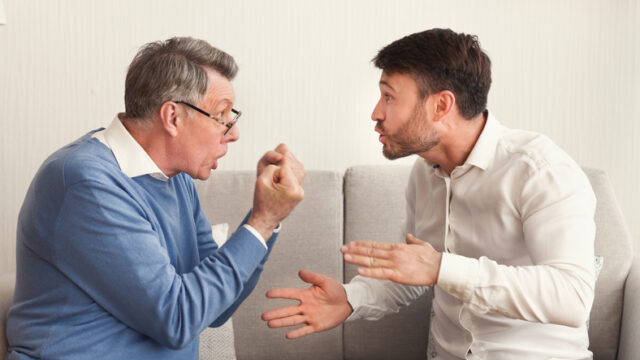Most of us go about our social lives without questioning the little rituals we’ve picked up along the way.

However, if you really stop and think about some of the things we do to be polite, fit in, or make conversation, they’re kind of… odd. From over-apologising to pretending we like things just to avoid awkwardness, there are plenty of social behaviours that feel totally normal until you step back and look at them from a distance. Here are some of the weirdest that we’re all pretty guilty of.
1. Saying “fine” even when you’re not

It’s practically a reflex. Someone asks how you’re doing, and you respond with “I’m fine,” even if your world is falling apart, or you’ve just stubbed your toe on the way into the room. We’ve collectively agreed that this automatic response is the polite thing to do, even though it tells the other person absolutely nothing.
What’s strange is that we all know everyone’s faking it half the time, but we do it anyway to avoid deeper conversations or emotional vulnerability in casual settings. It’s a social script we’re all following, even if no one’s actually feeling “fine” at all.
2. Laughing when we’re uncomfortable

Ever found yourself chuckling at something that wasn’t remotely funny just because the silence felt awkward? It’s incredibly common to laugh as a coping mechanism, especially in uncomfortable or tense situations. The weird part is that we all do it, and usually without realising why.
This behaviour can confuse people, especially if they think you’re amused when you’re actually anxious or overwhelmed. It’s like your brain hits the “laugh now” button just to keep things socially smooth, even if it’s not the right emotional response.
3. Saying “bless you” every time someone sneezes

No one really knows why we do this anymore—it’s just a thing we’ve decided is polite. It started as a superstitious belief to ward off evil spirits, but centuries later, we’re still offering blessings to people who are allergic to dust.
It’s not bad, necessarily, it just doesn’t make much logical sense. You sneeze, and suddenly strangers are blessing you like you’ve done something brave. Try not saying it once in a room full of people, and you’ll feel weirdly rude, even though it’s just a noise coming out of someone’s nose.
4. Apologising for things that aren’t your fault

“Sorry” has become such a common part of our vocabulary that we often say it when we’ve done absolutely nothing wrong. Someone bumps into you? You say sorry. You walk into a room at the same time as someone else? Sorry again.
While it comes from a place of politeness, it’s bizarre when you break it down. We’ve trained ourselves to apologise for simply existing in someone’s space, which feels like an unnecessary form of self-blame most of the time.
5. Pretending to understand when we don’t

It’s surprisingly common to nod and smile during a conversation, even when you have no idea what the other person is talking about. Whether it’s a niche hobby, a reference you missed, or a story that’s gone off the rails, you act like you’re following.
We do this to avoid awkwardness or embarrassment, but it can lead to even more confusion down the line. It’s one of those social habits where the fear of looking clueless outweighs the desire for actual clarity.
6. Making eye contact to show you’re listening

We’ve all been told eye contact is a sign of respect and attention, but when you think about it, staring into someone’s eyes for long stretches of time would be considered weird in almost any other context.
Maintaining the “right” amount of eye contact is a delicate dance. Too little and you seem disinterested; too much and you risk making the other person uncomfortable. It’s a socially accepted behaviour that would be incredibly intense if it weren’t so widely expected.
7. Clapping at the end of a film in a cinema

No one from the film is there to hear the applause, but in some places, clapping at the end of a really good movie is just what people do. It’s like a collective moment of appreciation, even though it’s not directed at anyone present.
It’s a bit like giving a standing ovation to your TV screen. The logic’s a bit shaky, but the shared experience of enjoying something together makes it feel normal, even if it is technically a one-way performance.
8. Smiling to be polite when you don’t feel like it

We often flash a smile in social situations, not because we’re happy, but because it’s what’s expected. It’s used as a shield, a greeting, or a way to signal that everything’s fine, even if it’s not.
The idea of faking happiness on your face just to avoid making anyone uncomfortable is one of those social norms that feels stranger the more you think about it. But for better or worse, it’s become second nature to most of us.
9. Avoiding the last piece of food on a shared plate

There’s this unspoken rule that the last slice of pizza or final dumpling is sacred and must not be touched. Everyone silently agrees to leave it, even if they’re still hungry and want it.
It’s a strange form of politeness where no one wants to be the one who looks greedy, even if taking it would actually prevent it from being wasted. In group settings, that last piece can sit there like a social landmine no one wants to step on.
10. Asking “How are you?” but not really meaning it

This question is a standard greeting, but let’s be honest—it’s not always sincere. Most people don’t want a real answer, especially if it’s long or emotionally heavy. They’re just being polite.
It’s more of a script than a question, and both people usually know it. The weird part is when someone actually answers honestly, and you’re caught off guard. It highlights how we use conversation as a form of social rhythm rather than real connection.
11. Making small talk about the weather

Weather is the ultimate neutral ground in conversation. It’s the go-to topic when we don’t know what else to say, but still want to seem friendly or approachable. “Bit chilly today, isn’t it?” is basically code for “I’m trying to be polite.”
What’s strange is how we keep repeating the same surface-level weather observations over and over again with different people. It rarely leads anywhere meaningful, but it’s a safe space in the world of small talk.
12. Waving at people who weren’t actually waving at you

It’s happened to almost everyone: you see a wave from across the street, enthusiastically wave back, only to realise it was meant for someone else. It’s a classic social blunder that somehow keeps happening.
What makes it strange is how we immediately feel embarrassed, even though it’s such an innocent mistake. It’s a reminder of how much social behaviour revolves around assumed connection, even when it’s just a wave that wasn’t ours to catch.




